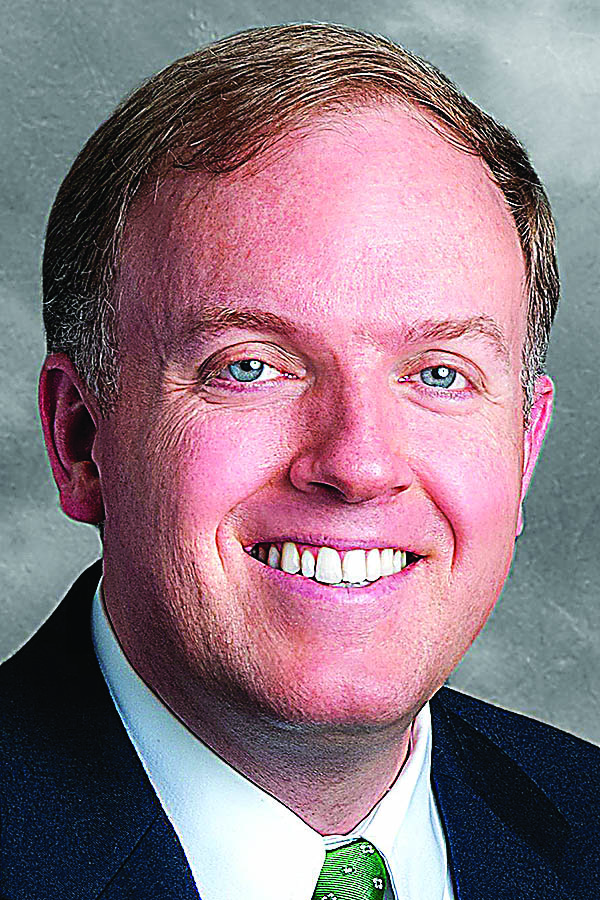Trump’s pause in his war with the press
Published 6:44 pm Thursday, March 2, 2017

- MorgueFile
WASHINGTON – President Donald Trump pulled back from his attack on the news media in his address to a joint session of Congress, except for one little-noticed dig.
In introducing the families of two California police officers and a high school athlete killed by illegal immigrants in 2014 and 2008, respectively, the president remarked: “We are providing a voice to those who have been ignored by our media.”
There were several news reports of the shooting deaths at the time. Trump wanted to make a point and he made it almost as an aside amid the clapping for the family members who stood to be recognized.
But Trump’s speech made no other mention of the press. No slamming of journalists as “the enemy of the people” or “among the most dishonest human beings on Earth” or not even “the opposition party” — some of his more publicized descriptions of the media during his first month in office.
In several interviews, it appeared the result of Trump’s muted bellicose brought bipartisan relief, especially from Republicans in Congress who said Trump’s war against the press detracts from their efforts to sow political unity in order to get action on his legislative agenda.
“He didn’t go there,” said GOP Sen. Shelley Moore Capito of West Virginia. “And I was glad he didn’t. To really move forward with his programs, the press is essential for him to succeed.”
Capito said she’s been surprised with Trump’s harsh pounding of the press. “He’s fairly media savvy,” she said. “He knows the power of the media,” including its value as a conduit to the public.
Sen. John Cornyn of Texas, the Senate’s second ranking Republican, said the media landscape today speaks with so many diverse voices due to the babble of the Internet that it is difficult to separate mainstream journalism from bad or fake news.
Cornyn said he majored in journalism at Trinity University in San Antonio in the early 1970s, when traditional reporters abided by a code of conduct that discouraged such practices as publishing unsubstantiated rumors.
“Now, everybody with a website or blog is a reporter — and a lot of what they report is wrong,” he said. “I don’t know what to do about it.”
“The press has its job to do and those of us in public life have to have thicker skins,” he said. “I wouldn’t call the press an enemy of the people.”
Sen. Elizabeth Warren of Massachusetts said the president and other politicians should not blame the press for reporting news they don’t like but which the public has a right to know.
She said Trump “shows his weakness” when he denounces the media. “A free press is essential to a healthy democracy,” said Warren, the subject of strong criticism from the press for her challenged Native American ancestry when running for the Senate in 2012.
Rep. Dave Loebsack, D-Iowa, saw Trump’s congressional speech restraint as a “good sign” of a change in tone, moving away from comments that are “outrageous and beyond the pall” such as branding the mainstream media as purveyors of fake news.
Loebsack noted former Republican President George W. Bush, who also had disputes with the press, took issue with Trump’s media-bashing during an appearance Monday on NBC’s Today show.
“We need an independent media,” said Bush. “Power can be very addictive. And it can be corrosive. And it’s important for the media to call to account people who abuse their power, whether it be here or elsewhere.”
Rep. Todd Rokita, R-Indiana, however, took a different view. He doubted Trump would stop calling out the press when he feels it is unfair – and, he added, he shouldn’t cease doing so.
“I think he’s right on,” Rokita said in an interview. “A lot of journalism is about ‘gotchas,’” intended to advance the career interests of reporters and news outlets instead of serving the public interest.
Rokita said when the president encounters inaccurate reporting, “he should call it out strongly.”
Kery Murakami is the CNHI Washington reporter. Contact him at kmurakami@cnhi.com





